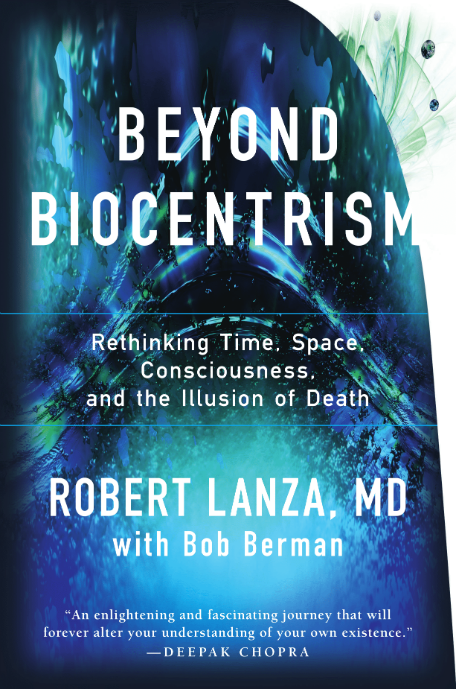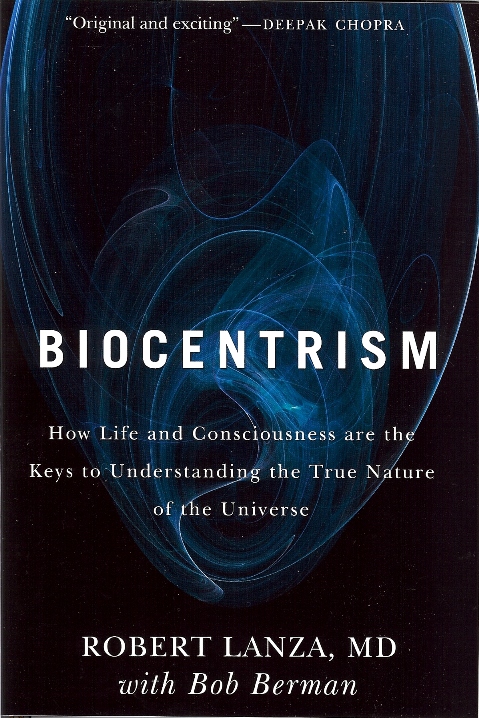
Can life really be reduced to the laws of physics, or are we part of something more noble and triumphant?
Through the eyes of science, you’re a speck of junk spinning around the core of the Milky Way galaxy, which itself is whirling through the unfathomable blackness of space. It’s all in the equations, you know. Nothing to get philosophical about. Nobel physicist Steven Weinberg summed it up best:
The effort to understand the universe is one of the very few things that lifts human life a little bit above the level of a farce and gives it some of the grace of a tragedy.
Can life really be reduced to the laws of physics? Or are we – as all the great spiritual leaders of the world have intuited – part of something higher, which is more noble and triumphant?
The latter is hard for us to rationally comprehend, since we’ve had more years of scientific indoctrination than monks get in monasteries. In Robert Heinlein’s “Stranger in a Strange Land,” Jubal said we’re prisoners of our early indoctrinations, “for it is hard, very nearly impossible, to shake off one’s earliest training.” We’ve been taught since grade school that life is an accidental byproduct of the laws of physics, and that the Universe is a dreary play of billiard balls.
True, science has brought us countless insights that have transformed our lives. It’s amazingly good at figuring out how the parts work. The clock has been taken apart, and we can accurately count the number of teeth in each wheel and gear. We know Mars rotates in 24 hours, 37 minutes and 23 seconds. What eludes us is the big picture, which unfortunately encompasses all the bottom-line issues: What is the nature of this thing we call reality?
Any honest summary of the current state of explaining the universe as a whole: a swamp. And in this Everglade, the alligators of common sense must be evaded at every turn.
Some scientists insist a Theory of Everything is just around the corner. But it hasn’t happened and won’t happen until we understand a critical component of the cosmos – a component that has been shunted out of the way because science doesn’t know what to do with it. “Consciousness” isn’t a small item; it’s an utter mystery, which we think has somehow arisen from molecules and goo.
In short, the attempt to explain the nature of the universe and what’s really going on requires an understanding of how the observer – our presence – plays a role. Our entire education and language revolves around a mindset that assumes a separate universe “out there.” It’s further assumed we accurately perceive this external reality and play little or no role in its appearance.
However, starting in the ’20s, experiments have shown the opposite: The observer critically influences the outcome. The experiments have been performed so many times, with so many variations, it’s conclusively proven that a particle’s behavior depends upon the very act of observation. The results of these experiments have befuddled scientists for decades. Some of the greatest physicists have described them as impossible to intuit.
Amazingly, if we accept a life-created reality, it all becomes simple to understand, and you can explain some of the biggest puzzles of science. For instance, it becomes clear why space and time – and even the properties of matter itself – depend on the observer. Remember: You can’t see through the bone surrounding your brain. Space and time are simply the mind’s tools for putting everything together.
According to current scientific myth, all your struggles and tears are ultimately in vain. After you die and the human race is long gone, it’ll be as if nothing in your life ever existed.
Not so, says biocentrism: Reality isn’t a thing, it’s a process that involves our consciousness. Life is a melody so vast and eternal that human ears can’t appreciate the tonal range of the symphony. Time is the mind’s tool that animates the notes, the individual frames of the spatial world. “There’s no way to remove the observer – us – from our perceptions of the world,” said Stephen Hawking. “The past, like the future, is indefinite and exists only as a spectrum of possibilities.” You, the observer, collapse these possibilities, the cascade of events we call the universe.
Our consciousness animates the universe like an old phonograph. Listening to it doesn’t alter the record, and depending on where the needle is placed, you hear a certain piece of music. This is what we call “now.” The songs before and after are the past and future. In like manner, you, your loved ones and friends (and sadly, the villains too) endure always. The record doesn’t go away. All nows exist simultaneously, although we can only listen to the songs one by one. Time is On Demand.
“The most important thing I learned,” said Billy Pilgrim in Kurt Vonnegut’s novel “Slaughterhouse Five,” “was that when a person dies, he only appears to die. He is still very much alive in the past, so it is very silly for people to cry at his funeral. All moments, past, present and future, always have existed, always will exist.”
Robert Lanza has published extensively in leading scientific journals. His books “Biocentrism” and “Beyond Biocentrism” lay out the scientific argument for his theory of everything.




